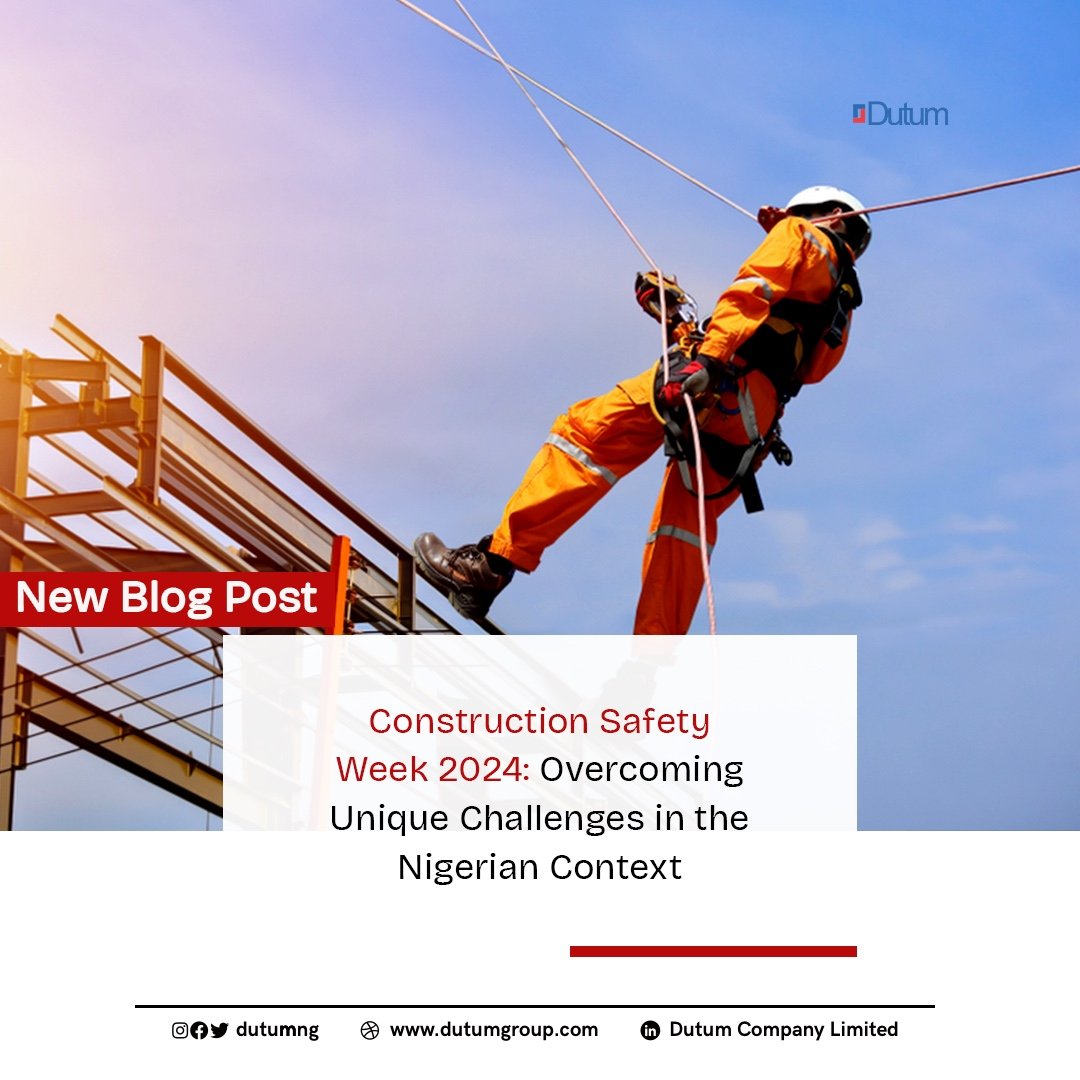Construction Safety Week is a global movement dedicated to raising awareness and driving action toward a safer working environment for everyone involved in the construction industry. This year’s theme, “Value Every Voice,” emphasizes the critical importance of creating a culture of open communication and participation in safety. Each voice on the worksite brings valuable perspective in identifying potential hazards and developing safer practices.
The Nigerian construction industry has witnessed significant strides in advancing safety standards. However, the journey towards a truly incident-free work environment is far from over. Construction remains a high-risk profession, and we must continually strive to understand the unique challenges faced within the Nigerian context to better protect our skilled workforce and build a more sustainable industry as a whole.
Unique Challenges in Nigeria
- Limited Resources: In Nigeria, inadequate funding for construction projects often results in limited safety resources. Essential equipment like personal protective gear, secure scaffolding, and hazard warning systems may be substandard or unavailable. Access to modern safety technology, such as monitoring devices or real-time communication tools, can also be limited, making it more difficult to identify and address risks proactively.
- Informal Sector: Much of Nigeria’s construction workforce operates within the informal sector. This presents significant safety challenges as these smaller operations may not have the same access to resources, training, or regulatory oversight as larger, more formalized companies. Workers in the informal sector are more prone to unsafe practices and face higher risks of accidents and injuries.
- Cultural Factors: Cultural attitudes towards risk and safety awareness can influence behavior on Nigerian construction sites. For example, there might be a tendency to prioritize productivity over safety precautions or an acceptance of greater risk due to economic pressures. Building a strong safety culture requires addressing these underlying beliefs and emphasizing the long-term value of investing in safety for both individuals and the industry.
- Rapid Urbanization: Nigeria’s cities and infrastructure are developing quickly. The pressure to meet deadlines and complete large-scale projects can sometimes compromise safety standards. Maintaining proper safety protocols and ensuring clear communication becomes even more challenging with multiple contractors and a constantly shifting work environment.
Strategies for Overcoming Challenges
- Government Support: The Nigerian government must play a crucial role in promoting construction safety. Increased investment in safety training programs, resources for procuring safety equipment, and developing clear and consistently enforced regulations are essential. Fostering a partnership between regulatory bodies and the industry can ensure that safety standards are practical and effective.
- Industry Collaboration: Collaboration across the entire construction sector is vital. Larger, well-established companies are responsible for leading the way by sharing best practices, knowledge, and potentially even resources with smaller enterprises and informal operations. This mentorship can significantly elevate safety standards throughout the industry.
- Education and Awareness: A proactive approach to safety necessitates continuous education programs designed for all workers, from on-site laborers to management. These programs should emphasize technical knowledge and instill a strong safety-first mindset. A safety culture is fostered when everyone understands the importance of their role in preventing accidents.
- Harnessing Technology: Even simple and affordable technological advancements can substantially affect Nigerian construction sites. Mobile communication tools improve hazard reporting and emergency response times. Basic monitoring devices can help track environmental hazards or potential equipment failures. Exploring how cost-effective technologies can be integrated is an important step towards a safer future for the industry.
Conclusion
Construction Safety Week 2024 allows every construction company in Nigeria, large and small, to take a decisive stand for safety. Let this week catalyse a thorough review of your existing safety protocols. Identify areas for improvement, invest in necessary training and equipment, and empower your workers to actively participate in creating a safer work environment.
Each individual on a construction site bears the responsibility to prioritize safety – their own and that of their colleagues. Look out for one another, speak up when you see a potential hazard, and never compromise safety for the sake of expediency.Let’s envision a future where Nigeria sets the standard for African construction safety. By working together, embracing technology, and relentlessly prioritizing the well-being of our workforce, we can transform the Nigerian construction industry into a model of safety, productivity, and sustainable development.



Leave a Reply